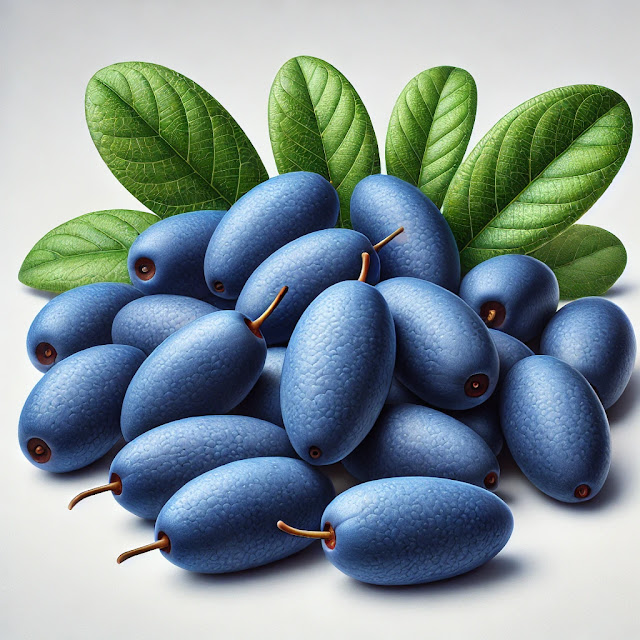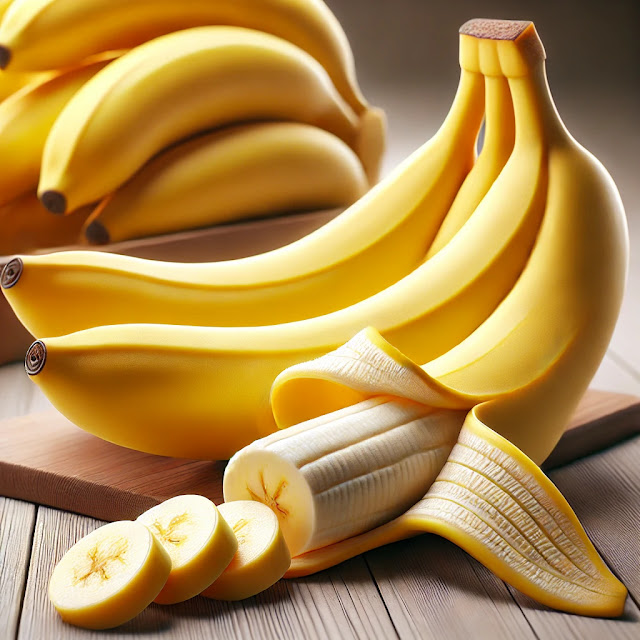Discover the Tropical Magic of Papaya: Health Benefits, Nutrition, and Fun Facts
Overview:
Papaya, often called the "fruit of angels," is a tropical delight that boasts vibrant orange flesh and a unique flavor. Known for its soft texture and juicy sweetness, papaya is not only delicious but also packed with essential nutrients. Its rich content of vitamins and enzymes makes it a perfect addition to a healthy diet, especially for those seeking to improve digestion and boost immunity.
Calories and Key Nutrients (per 100g):
Papaya is a low-calorie fruit, providing just 43 calories per 100g. It is rich in Vitamin C, providing more than 100% of the recommended daily intake in a single serving. Papaya is also a good source of Vitamin A, folate, and fiber. Its enzyme papain aids in digestion and helps break down proteins. Compared to fruits like bananas (89 calories per 100g) and apples (52 calories per 100g), papaya offers a high amount of vitamins with fewer calories, making it a great option for those looking to stay healthy while enjoying a sweet treat.
Health Benefits:
Papaya has numerous health benefits, starting with its ability to improve digestion due to the enzyme papain. This enzyme helps the body break down proteins and reduces bloating and indigestion. Additionally, the high levels of Vitamin C and beta-carotene in papaya boost the immune system and improve skin health by fighting free radicals. Papaya also contains antioxidants like lycopene, which may reduce the risk of certain cancers and support heart health.
Proper Consumption Methods:
Papaya can be enjoyed in various ways. The most common method is eating it fresh, simply slicing it open and scooping out the seeds. For a tropical twist, squeeze some lime juice over the papaya to enhance its sweetness. It can also be blended into smoothies or added to fruit salads. Papaya is versatile and can even be used in savory dishes like salsas or as a tenderizing agent in marinades for meat due to its enzyme content.
Delicious Ways to Enjoy (Recipe):
One simple and refreshing recipe is Papaya Smoothie. Blend fresh papaya with a banana, some coconut water, and a handful of ice for a refreshing, tropical drink. This smoothie is perfect for hot days or as a post-workout recovery beverage, providing hydration and essential nutrients.
Consumption Warnings:
While papaya is generally safe to eat, excessive consumption can lead to laxative effects due to its high fiber content. Additionally, unripe papaya contains a higher amount of latex, which may cause allergic reactions in people sensitive to latex. Pregnant women are advised to avoid unripe papaya, as it may induce contractions due to its latex content.
Comparison with Other Fruits:
When compared to mangoes or pineapples, papaya stands out for its low calorie and high Vitamin C content. While mangoes are rich in Vitamin A and pineapples are packed with bromelain, an enzyme similar to papain, papaya offers a lower calorie option with a similar tropical flavor. Papaya’s digestive benefits, due to papain, also set it apart from other tropical fruits.
Who Should Eat and Who Should Avoid:
Papaya is excellent for people looking to improve digestion or boost their immune system, particularly athletes and those recovering from illnesses. However, people with a latex allergy or those with kidney problems may want to limit their intake due to the potassium and latex content in the fruit. Pregnant women should also avoid unripe papaya due to its potential to trigger contractions.
Fun Facts:
Did you know that Christopher Columbus reportedly called papaya the "fruit of angels" because of its heavenly taste? Papaya trees produce fruit all year round, and in some parts of the world, the seeds are dried and used as a substitute for black pepper. Additionally, the enzyme papain is so effective at breaking down proteins that it's often used in meat tenderizers.
Papaya in Different Cultures:
In Thailand, papaya is the star ingredient in Som Tam, a spicy and tangy green papaya salad. In Mexico, papaya is often served fresh with a sprinkle of lime juice or used in smoothies. In India, both ripe and unripe papaya are commonly used in cooking—ripe for fruit salads and desserts, and unripe as a vegetable in curries and chutneys.
Research Findings on Papaya:
Recent studies have highlighted papaya’s potential in cancer prevention due to its high levels of lycopene and beta-carotene. Research has also shown that papaya may help reduce inflammation and support wound healing. The Journal of Ethnopharmacology published a study suggesting that papaya leaf extract could be beneficial in treating dengue fever by increasing platelet count in affected patients.
Additional Tips:
Papaya seeds, often discarded, are actually edible and contain compounds that can help improve digestion. They have a slightly peppery taste and can be dried and ground to use as a seasoning. Additionally, papaya can be used in skincare routines—applying mashed papaya to the skin can help exfoliate dead cells and give the skin a natural glow, thanks to its enzyme papain.




.%20The%20whole%20horned%20melon%20should%20be%20bright%20orange%20with%20distinctive.webp)






Comments
Post a Comment